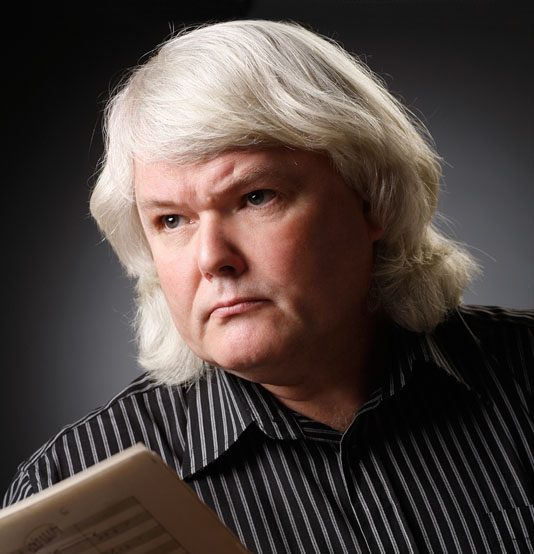Composer and teacher, ECU member since 1978Born on 14.12.1953
www.eespere.ee
Estonian Music Information Centre
In René Eespere’s well sounding music joy of the play and ritualistic power meet each other. The vocal genres that carry a message and the concert genre loaded with energy of motion akin to the Baroque music – those two hold a central position in the composer’s work. In Eespere’s idiom influences of baroque and rock music are present but relation to Estonian folk music and minimalist repetition technique can also be detected. Usually a spare, chamber-like texture of his music is enlivened by strenuously chanting rhythm. Tonal or modal mode approach, ostinato technique and variant development of simple motif sets are characteristic to the earlier works of the composer. In his later output the contrasting of images and chromatic melody shaping, free tonal and linear thinking have become prevailing.
In most cases, spiritual and ethic subjects dominate Eespere’s work: his music contemplates the secret of existence and the main values of life.
The ballet Man and a night (1977), choreographic scene Furies (1977) and ballet-ritual Ancient Dwellers (1979) – these symbolist stage works on the subject of mythological or primal “pre-history” were the first Eespere’s works that attracted public attention. From the eighties since today, works with ethic, spiritual and patriotic messages hold important place in Eespere’s choral works, such as oratorios “Passiones” (1980/ 2000), “Mystery” (1981) and “Mediterium” (1982/1985); choral poem “Page from Sakalamaa chronicle” (1983), “Two jubilations” (1986), “Glorificatio” (1990), “Mater rosae” (2003), “Revelation of Ristimetsa” (2004) and many others. At the same period also his patriotic songs (“The time of awakening”, 1983; “I love you, Estonia”) and cheerful children songs on life’s basic values have received a warm reception.
Eespere’s first chamber works were inspired by Baroque music, in the nineties the sound colour became more important (Trivium for flute, violin and guitar, 1991; Significatio for violin, guitar and cello, 1999; Sculpture’s Morning for violin, vibraphone and guitar, 2001; Ambitus for six instruments, 2002 etc). In his orchestral music seven concertos form the main body, including Concerto ritornello for two violins (1982/1993), violin concerto (1983/1991), two flute concertos (1995/1998, 2003), viola concerto (1996/1998), cello concerto Concertatus celatus (2004) and a clarinet concerto In dies(2005).
In 2002/2005 the opera Gourmets was completed – a grotesque allegory about the relationship of art and money.
René Eespere graduated from the composition class of Anatoli Garshnek at the Tallinn State Conservatoire in 1977 and furthered his studies at the Moscow Conservatoire with Aram Khachaturian and Aleksei Nikolayev from 1977 to 1979. Since 1979 he has been working at the Estonian Academy of Music and Theatre as a teacher of music theory (since 2002 as a Professor).
René Eespere’s music has been performed in most of the European countries, USA, Canada, Japan, Australia, South Africa, New Zealand and other places. His works has been published by Antes, Eres, Edition 49 and Edition Eisenberg. Seven author CD-s have been released: “Concentus: Tarmo Eespere spielt Klaviermusik von René Eespere” (Antes, 1995), “René Eespere. Concertos” (Antes, 1998), “René Eespere. Invocatio – new choral music from Estonia” (Christophorus, 2000), “René Eespere. Schokoladenland” (Eres, 2000), “René Eespere. Der Morgen der Skulptur” (Antes, 2001), “René Eespere. Concertatus celatus” (Antes, 2007) and “Februa” (Estonian Record Productions, 2010). Eespere has been awarded the annual ESSR Music Award (1989), the 4th class Order of the White Star (2001), the Live and Shine Award of the CEE (2001-2002), the Annual Prize of Endowment for Music of Culture Endowment of Estonia (2008) and Music Prize of the Estonian Music Council (2011).
© EMIC 2007 (updated in November 2011)
